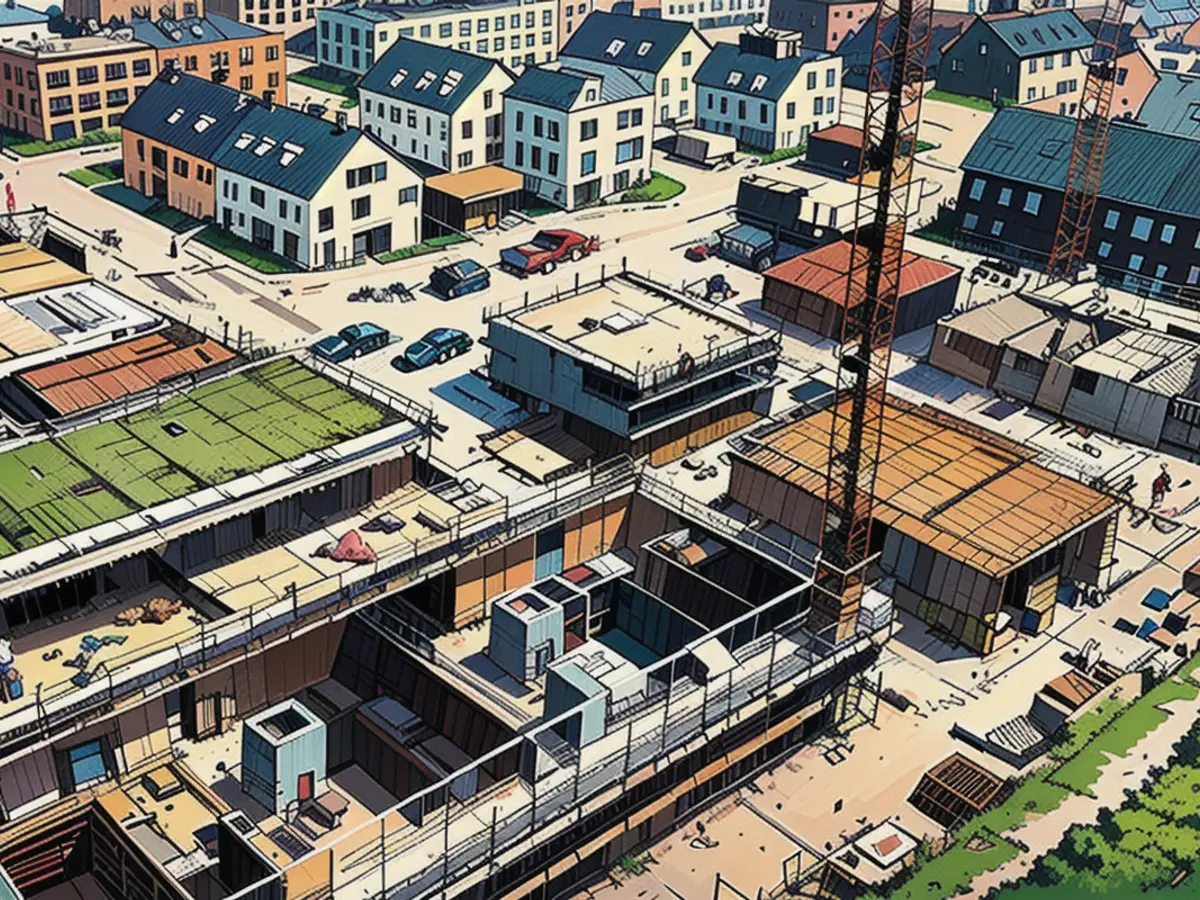The construction sector predicts a reduction of around 10,000 jobs.
The construction sector is facing difficulties in several areas. Prominent factors contributing to this predicament include the spike in interest rates, increasing global uncertainty, and a substantial hike in costs. As the sole exception, the civil engineering sector has witnessed an increased sales growth.
The German construction industry is expressing reservations about the economic landscape, as indicated by Peter Hubner, the president of the HDB association. Hubner estimates a 4% drop in earnings and a loss of 10,000 jobs in 2024. Initially, the HDB had projected a -3.5% decline in sales.
As Hubner stressed, we've been witnessing a declining trend in the construction industry's performance for four years now, and there's no sign of recouping losses during this year either. The primary reason for this gloomier outlook is the presence of an underperforming public construction segment. Instead of a marginal plus, a 0.5% downturn is predicted. The pessimism has intensified as revenues and subsequent investments have been markedly slashed due to tax reforms.
The residential construction sector is facing the most severe challenges. Sales, adjusted for inflation, are anticipated to decrease by 12% in this category, Hubner noted. Contrastingly, civil engineering is the predicted growth sector with a 1.5% expansion in sales. Here's the reason - substantial orders from Deutsche Bahn, power grid operators, and public transport will offset the sluggish performance of the wider industry.
The number of completed residential properties is diminishing. The market research conducted by the HDB suggests that the construction industry is critical to the overall economy. The direct contribution to GDP was 5.2% in 2019, as per data from the IW. From the high point in 2021, the construction industry's real value-added has dropped by 15% till the end of 2023. "Besides rising interest rates and global uneasiness, the surging building costs have primarily plagued the housing market."
Data from the IW indicates that 350,000 new housing units per year are expected to be built in the coming years to keep pace with the economy's development. However, the real estate market's performance may dip below 250,000 units in 2024. To avert this outcome, real estate investments would need to augment by roughly €20 billion annually, commencing from the 295,000 residential units completed in 2022 and 2023. The IW suggests mulling over adjustments to construction regulations to improve industry productivity, such as adopting serial construction methods.
Read also:
Given the economic challenges facing the construction industry, there have been significant job cuts, resulting in a loss of 10,000 jobs as predicted by Peter Hubner. This downturn in the industry is particularly noticeable in the residential construction sector, where sales, adjusted for inflation, are expected to decrease by 12%. The economic situation has also impacted residential construction, leading to a decrease in the number of completed properties.








